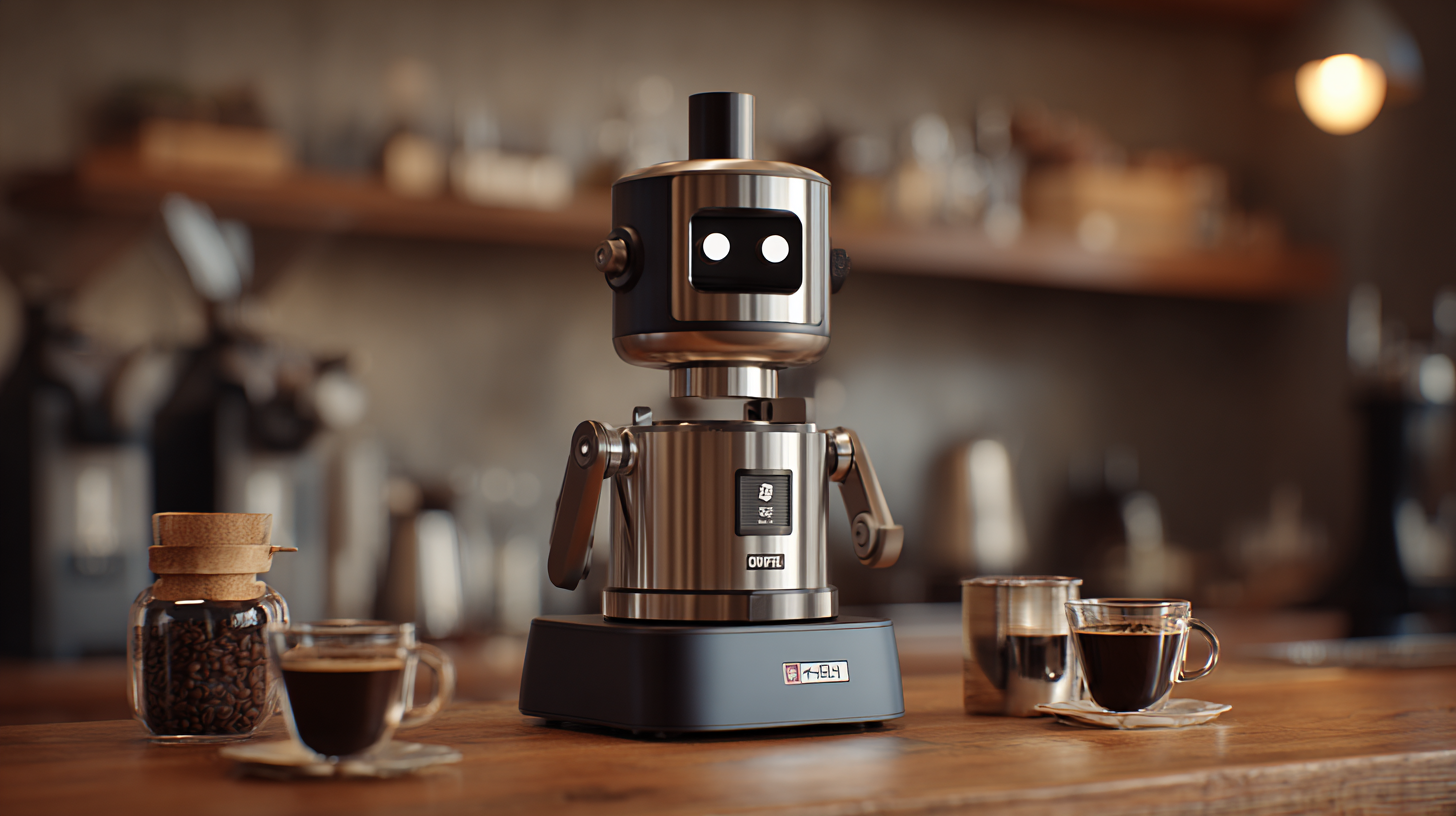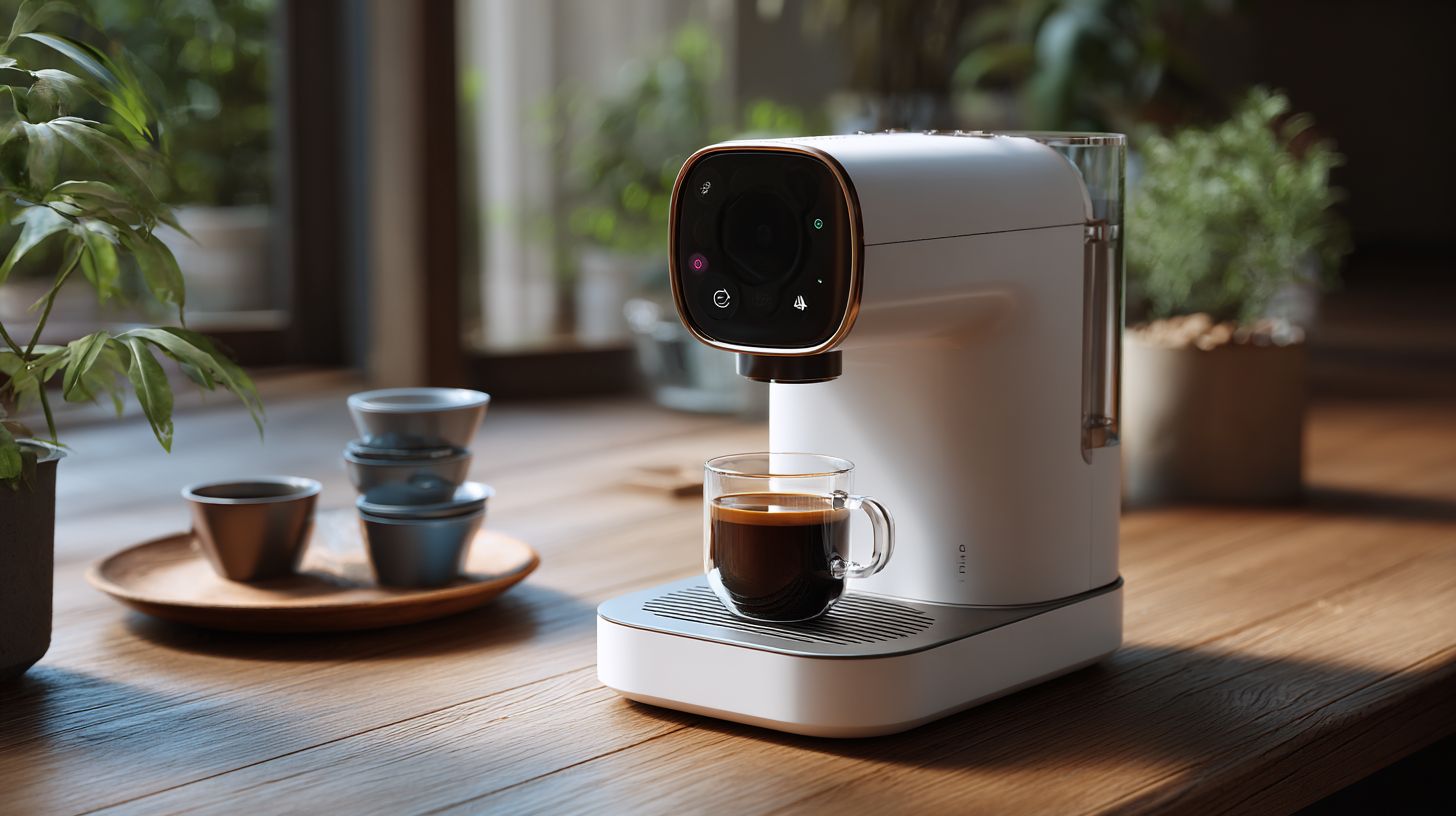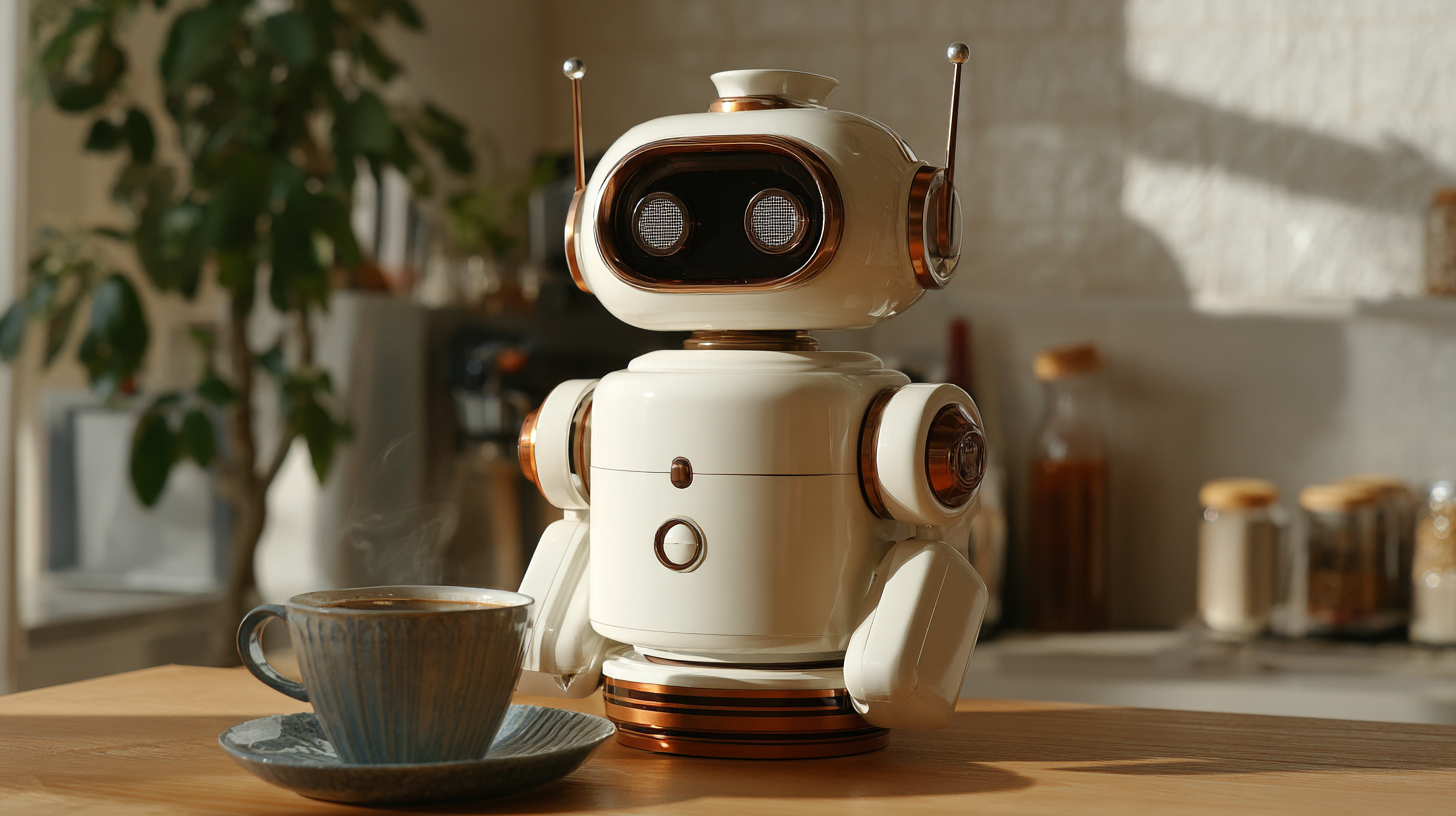Revolutionizing Your Morning Brew with the Rise of Coffee Robots
In recent years, the coffee industry has experienced a significant transformation, predominantly driven by technological advancements that have given rise to innovative solutions. Among these advancements, the emergence of the Coffee Robot stands out as a game changer, reshaping the way we experience our morning brew. These robots are not merely gadgets; they represent a new wave of automation that promises to enhance efficiency, consistency, and, ultimately, the quality of our coffee.
As consumers increasingly seek convenience, the Coffee Robot emerges as the perfect solution, allowing individuals to enjoy barista-quality beverages with minimal effort. By integrating sophisticated algorithms, precise brewing techniques, and user-friendly interfaces, these robots have gradually earned their place in our kitchens, offices, and cafes. The rise of the Coffee Robot signals a shift towards a more personalized coffee experience, catering to diverse tastes and preferences in a fast-paced world where time is of the essence.
In this exploration of the Coffee Robot phenomenon, we will delve into the technology behind these machines, the benefits they offer over traditional brewing methods, and their potential impact on coffee culture as a whole. Join us as we uncover how these automated baristas are revolutionizing our mornings, one cup at a time.

The Evolution of Coffee Brewing: From Traditional Methods to Automation
In recent years, the coffee brewing industry has experienced a notable shift towards automation, transforming how enthusiasts prepare their morning brew. Traditional methods, such as pour-over and French press, have long been favored for their craftsmanship and ability to produce rich flavors. However, a report by the National Coffee Association reveals that nearly 22% of American coffee drinkers now use some form of automated coffee machine, a significant rise from just 12% a decade ago. This surge in automation reflects an increasing demand for convenience and consistency in coffee preparation.
The evolution from manual to automated brewing methods not only caters to busy lifestyles but also enhances the overall coffee experience. Advanced coffee robots are capable of replicating the precision and nuances typically achieved by skilled baristas. According to a study by Technavio, the global smart coffee maker market is expected to grow by 18% annually through 2025, highlighting the consumer trend towards tech-savvy brewing solutions. This shift indicates a promising future where the art of coffee making meets the science of automation, allowing more people to explore high-quality brews from the comfort of their homes.
Revolutionizing Your Morning Brew: The Rise of Coffee Robots
This chart illustrates the evolution of coffee brewing methods over the years, showcasing the growing adoption of automated brewing techniques compared to traditional methods.
Meet Your Barista: How Coffee Robots Enhance the Brewing Experience
As technology advances, coffee robots are redefining the way we experience our morning brew. These automated baristas blend precision, consistency, and creativity, allowing coffee enthusiasts to enjoy a perfectly crafted cup every time. Whether it's a silky espresso or a smooth pour-over, coffee robots utilize sophisticated algorithms to calibrate water temperature, grind size, and brew time, ensuring that each cup meets the highest quality standards.
Beyond just functionality, coffee robots also enhance the overall brewing experience. Many models feature user-friendly interfaces that allow consumers to customize their drinks effortlessly. From adjusting strength and flavors to experimenting with new recipes, coffee lovers can personalize their drinks to fit their unique preferences. Additionally, the interactive design of these machines adds an element of fun to the brewing process, transforming a routine morning ritual into an engaging experience. As coffee robots become more accessible, they are not just machines; they are becoming integral companions in our coffee journeys, merging convenience with an artisanal touch.

The Technology Behind Coffee Robots: Innovation in Every Cup
The rise of coffee robots is transforming the way we enjoy our morning brew, leveraging innovative technology to consistently deliver the perfect cup. According to a recent report by the International Coffee Organization, the global coffee market has been evolving, with an increasing demand for automation in coffee preparation. An estimated 60% of coffee shops are now exploring robotic solutions to enhance efficiency and reduce labor costs, which are significant factors in the world of caffeination.
Coffee robots utilize advanced algorithms and machine learning to customize each brew based on user preferences. These machines can analyze factors such as grind size, water temperature, and brew time, resulting in a cup tailored to individual tastes. A study by the Specialty Coffee Association revealed that 72% of consumers are interested in using technology that can adapt to their specific flavor preferences. As the integration of robotics and artificial intelligence in coffee-making continues, we can expect a future where every cup is not only expertly crafted but also shares the unique touch of its drinker.
Revolutionizing Your Morning Brew with the Rise of Coffee Robots
| Feature | Description | Benefits |
|---|---|---|
| Automated Brewing | Coffee robots use advanced algorithms to brew coffee with precision. | Consistent taste and quality in every cup. |
| Customization | Users can personalize their coffee preferences through a mobile app. | Tailored coffee experience based on individual tastes. |
| Smart Connectivity | Integrates with smart home systems for seamless control. | Convenient brewing from anywhere in the home. |
| Energy Efficiency | Designed to minimize power consumption while in use. | Lower energy bills and environmental impact. |
| User-Friendly Interface | Touchscreen controls and guided setups are available. | Easy for anyone to use, regardless of tech familiarity. |
Sustainability in Coffee Production: The Role of Automation
As the coffee industry grapples with sustainability challenges, automation is stepping in as a game changer. According to a recent report by the International Coffee Organization, about 60% of coffee farmers experience the negative impacts of climate change, leading to decreased yields and increased production costs. The introduction of coffee robots not only streamlines production processes but also helps farmers optimize resource utilization. Automation technologies such as robotic harvesters and smart irrigation systems can significantly reduce water usage by up to 30%, promoting sustainable practices in coffee cultivation.

Moreover, automated systems can enhance the traceability of coffee production, allowing consumers to make informed choices. A study by McKinsey & Company shows that 70% of consumers are willing to pay a premium for sustainably sourced products. By employing automation, coffee producers can improve transparency in their supply chains, ensuring that sustainability claims are backed by data. The rise of coffee robots is thus not just a technological advancement but a pivotal move towards a more sustainable and efficient coffee industry, appealing to environmentally conscious consumers worldwide.
Future Trends: How Coffee Robots Are Shaping the Coffee Industry
As coffee enthusiasts increasingly seek convenience and consistency, the rise of coffee robots is transforming the coffee industry.
According to a report by Allied Market Research, the global coffee robotics market is projected to reach approximately $5 billion by 2025, growing at a compound annual growth rate (CAGR) of 20.3% from 2018 to 2025. This surge indicates a significant shift in consumer preferences and operational strategies among coffee businesses.
Coffee robots are not just about automation; they are enhancing the overall customer experience by providing precise and personalized brews. Innovative machines are capable of adjusting brewing parameters based on individual preferences, helping cafes optimize their service while ensuring uniform quality.
A survey by the Specialty Coffee Association found that over 70% of consumers are interested in trying coffee brewed by robots, citing factors like novelty and consistency. As technology advances, the integration of artificial intelligence into coffee-making processes will likely lead to even more sophisticated and adaptable robots, further shaping the future landscape of the coffee industry.
